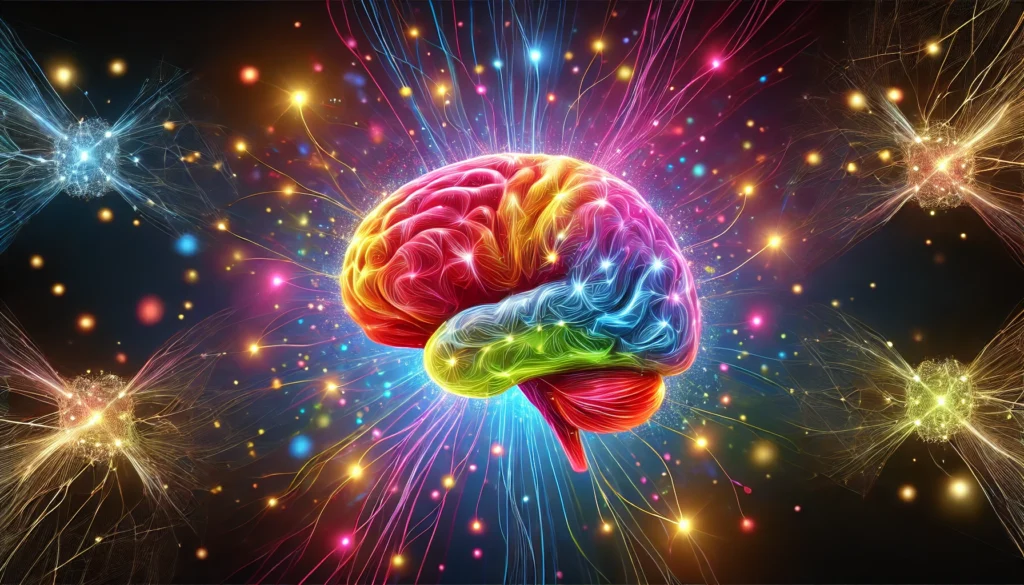Introduction
A strong and adaptable mindset is the foundation of success, happiness, and overall well-being. In an era characterized by constant challenges, mental resilience has become more essential than ever. A better mindset not only helps individuals navigate personal and professional hurdles but also fosters emotional intelligence, motivation, and sustained self-improvement. But how can one cultivate such a mindset? This article explores how to get a better mindset using science-backed strategies, blending psychological research, cognitive behavioral techniques, and practical lifestyle changes to enhance mental resilience and cognitive well-being.
You may also like: How Does Exercise Improve Mental Health? Science-Backed Benefits You Should Know
Understanding Mindset and Its Impact on Well-Being
Mindset refers to a collection of attitudes, beliefs, and thought patterns that influence behavior and emotional responses. The psychology of mindset has been extensively studied, with research highlighting two primary types: fixed and growth mindsets. A fixed mindset assumes abilities and intelligence are static, whereas a growth mindset embraces the idea that abilities can be developed through dedication and learning.
The implications of mindset extend beyond academics and careers; they also affect emotional health, resilience, and interpersonal relationships. Studies have shown that those with a growth mindset are more likely to persevere through setbacks, maintain motivation, and engage in continuous self-improvement. Conversely, individuals with a fixed mindset are more prone to self-doubt and fear of failure. To get a better mindset, one must first recognize and challenge limiting beliefs that hinder growth.
The Role of Neuroplasticity in Changing Your Mindset
Neuroplasticity, the brain’s ability to reorganize itself by forming new neural connections, plays a crucial role in shaping mindset. Scientific studies have demonstrated that the brain remains adaptable throughout life, meaning that individuals can rewire thought patterns with intentional effort. This discovery underscores the possibility of cultivating a good mindset through consistent practice and mindfulness.
One way to harness neuroplasticity is through cognitive restructuring—identifying negative thought patterns and consciously replacing them with positive, constructive alternatives. Meditation, journaling, and visualization techniques have also been shown to rewire neural pathways, fostering resilience and optimism. By actively engaging in mental exercises, individuals can shift from a fixed mindset to a more adaptive and empowering outlook.
The Power of Positive Thinking and Self-Talk
The way individuals speak to themselves profoundly influences their mindset. Negative self-talk, characterized by self-criticism and doubt, can create barriers to success and happiness. On the other hand, positive self-talk fosters confidence and motivation, enabling individuals to navigate life’s challenges with greater ease.
Research in cognitive-behavioral therapy (CBT) highlights the importance of reframing negative thoughts. For example, replacing “I am not good at this” with “I am learning and improving” can significantly impact one’s perception of ability and perseverance. Practicing daily affirmations and gratitude exercises can also help reinforce a positive mindset, creating a habit of self-encouragement rather than self-doubt.

Emotional Intelligence and Mindset Development
Emotional intelligence (EI) refers to the ability to recognize, understand, and manage emotions effectively. High EI contributes to a resilient mindset by promoting self-awareness, empathy, and effective stress management. Research has shown that individuals with high emotional intelligence are better equipped to handle setbacks, build strong relationships, and maintain a positive outlook.
Developing EI involves practicing mindfulness, enhancing self-reflection, and improving communication skills. By becoming more attuned to emotions and reactions, individuals can better regulate their responses to adversity. This self-awareness allows for conscious decision-making and fosters a constructive approach to personal and professional challenges.
The Connection Between Physical Health and Mindset
The mind and body are intrinsically connected, meaning that physical well-being directly impacts mental resilience. Studies have shown that regular exercise boosts mood, reduces stress, and enhances cognitive function. Physical activity stimulates the production of endorphins and serotonin, neurotransmitters that play a vital role in maintaining a positive mindset.
Moreover, a balanced diet rich in nutrients supports brain function and emotional stability. Omega-3 fatty acids, found in fish and flaxseeds, have been linked to improved cognitive function, while antioxidants from fruits and vegetables protect against oxidative stress. Proper hydration and sufficient sleep further contribute to mental clarity and emotional regulation, emphasizing the importance of holistic self-care in achieving a better mindset.
Overcoming Limiting Beliefs and Fear of Failure
One of the greatest obstacles to a good mindset is the presence of limiting beliefs—deep-seated convictions that restrict personal growth and potential. These beliefs often stem from past experiences, societal influences, or fear of failure. To cultivate a better mindset, individuals must challenge these limitations and reframe their perceptions of setbacks.
Failure should be viewed as a learning opportunity rather than a definitive defeat. Psychological studies have shown that adopting a “fail forward” attitude increases resilience and adaptability. Successful individuals across various fields often attribute their achievements to their ability to learn from failure rather than avoid it. Embracing mistakes as part of the growth process is key to developing a mindset that thrives on challenges rather than being paralyzed by them.
Cultivating Gratitude and Optimism
Gratitude and optimism are powerful tools for fostering a resilient mindset. Research has demonstrated that practicing gratitude enhances emotional well-being, reduces stress, and improves overall life satisfaction. Keeping a gratitude journal, where individuals list three things they are grateful for each day, has been found to shift focus from negativity to appreciation.
Optimism, the tendency to expect positive outcomes, is another critical aspect of a strong mindset. Optimistic individuals are more likely to persist through difficulties and remain solution-focused. Cultivating optimism involves recognizing negative thought patterns and consciously redirecting them towards positive interpretations of events. By training the brain to see possibilities rather than obstacles, individuals can create a mindset that supports personal growth and fulfillment.

Frequently Asked Questions (FAQ): How to Get a Better Mindset
1. What is the most effective way to start developing a better mindset?
Developing a better mindset begins with self-awareness and a commitment to change. One of the most effective ways to initiate this transformation is by identifying thought patterns that may be limiting personal growth. Cognitive reframing, a psychological technique used to shift perspectives on negative experiences, can be highly beneficial. Additionally, setting small, achievable goals and gradually increasing challenges fosters resilience and reinforces positive habits. Engaging in self-reflection through journaling or mindfulness exercises further supports the transition to a healthier and more adaptive mindset.
2. How long does it take to see improvements when working on a better mindset?
The timeline for developing a good mindset varies from person to person, depending on consistency, effort, and individual circumstances. Some individuals notice changes within a few weeks of implementing new mental habits, while others require months or even years to achieve lasting transformation. The key is to remain patient and persistent, as mindset shifts are a cumulative process. Research in neuroplasticity suggests that the brain forms new habits and neural pathways over time, reinforcing the importance of daily practice. Small wins should be acknowledged along the way, as they contribute to long-term progress and sustained mental resilience.
3. Can external factors influence how to have a good mindset?
Yes, external factors play a crucial role in shaping one’s mindset. Environment, social interactions, and life experiences can either support or hinder mindset development. A supportive network of friends, mentors, or coaches can provide encouragement and reinforce positive thinking patterns. Exposure to new ideas, travel, and continuous learning also broadens perspectives, making it easier to embrace adaptability and growth. Additionally, reducing exposure to toxic environments—whether in relationships or workplace settings—can eliminate negative influences that might otherwise stifle personal progress.
4. How does physical health impact mindset improvement?
Physical health and mental resilience are deeply interconnected. Regular exercise has been shown to improve mood, reduce stress, and enhance cognitive function, all of which contribute to developing a better mindset. Proper nutrition plays an equally vital role, as deficiencies in essential nutrients, such as omega-3 fatty acids and B vitamins, can negatively affect brain function. Sleep quality is another major factor; chronic sleep deprivation is linked to increased stress, emotional instability, and poor decision-making. By prioritizing physical health through diet, exercise, and rest, individuals can create an optimal foundation for long-term mindset improvements.
5. How can I maintain a good mindset during difficult times?
Difficult times test the strength of one’s mindset, making it crucial to cultivate resilience and adaptability. One effective approach is to reframe challenges as opportunities for growth rather than insurmountable obstacles. Practicing mindfulness and deep breathing techniques helps regulate emotional responses to stress. Additionally, maintaining perspective by focusing on long-term goals rather than short-term setbacks can reduce feelings of helplessness. Seeking support from trusted individuals or engaging in self-care routines can provide much-needed stability during tough times. Ultimately, embracing difficulties as part of life’s journey strengthens mental fortitude over time.
6. What role does gratitude play in achieving a better mindset?
Gratitude is a powerful tool in fostering a positive mindset, as it shifts focus from what is lacking to what is already present. Regularly practicing gratitude has been linked to increased happiness, reduced stress, and enhanced emotional resilience. Keeping a gratitude journal, where individuals write down three things they are grateful for each day, helps reinforce this perspective. Expressing appreciation to others also strengthens social bonds and promotes a more optimistic outlook. Over time, training the mind to recognize and appreciate small victories fosters an enduring sense of fulfillment and contentment.
7. How can one overcome self-doubt when working on a better mindset?
Overcoming self-doubt involves challenging negative thought patterns and replacing them with constructive beliefs. One strategy is to recognize and reframe limiting beliefs by questioning their validity and considering alternative perspectives. Developing self-affirmations—statements that reinforce confidence and capability—can help counteract self-doubt. Exposure therapy, or gradually facing fears in a controlled manner, builds confidence by demonstrating personal competence. Seeking feedback from mentors or peers also provides objective insights that counteract overly critical self-assessments. With consistent effort, individuals can train themselves to adopt a more self-assured and empowering mindset.
8. How does emotional intelligence contribute to a good mindset?
Emotional intelligence (EI) is essential for cultivating a good mindset, as it enhances self-awareness, emotional regulation, and interpersonal relationships. High EI allows individuals to recognize and manage their own emotions effectively, reducing impulsive reactions and fostering emotional stability. It also improves empathy, enabling individuals to navigate social situations with greater understanding and cooperation. People with high EI are more adaptable to change and better equipped to handle stress, which supports long-term mindset improvements. Developing EI through self-reflection, active listening, and mindfulness strengthens mental resilience and promotes overall well-being.
9. Can technology help in developing a better mindset?
Technology offers a range of tools that can support mindset development when used intentionally. Meditation and mindfulness apps provide guided exercises that help regulate stress and enhance focus. Digital journaling platforms allow individuals to track progress and reflect on personal growth. Online courses and podcasts offer valuable insights from experts on how to cultivate a better mindset. However, excessive screen time and exposure to negative content, such as social media comparisons, can be detrimental. Striking a balance between leveraging technology for self-improvement and maintaining offline mindfulness is key to optimizing its benefits.
10. What is the biggest mistake people make when trying to improve their mindset?
One of the most common mistakes is expecting instant results. Many individuals become discouraged when they do not see immediate changes, leading them to abandon their efforts prematurely. Another mistake is relying solely on positive thinking without taking action to reinforce mindset shifts. True transformation requires both mental and behavioral changes, such as setting tangible goals and practicing new habits consistently. Additionally, failing to address underlying emotional blocks, such as past traumas or unresolved fears, can hinder progress. Understanding that mindset improvement is a lifelong journey rather than a quick fix helps set realistic expectations and sustain motivation.

Conclusion: Building a Sustainable Mindset for Long-Term Well-Being
Developing a better mindset is not a one-time event but an ongoing process of self-improvement and intentional effort. By understanding the science behind mindset, leveraging neuroplasticity, and incorporating positive self-talk, emotional intelligence, and healthy lifestyle habits, individuals can cultivate a mindset that supports resilience and well-being. Overcoming limiting beliefs, embracing failure as a learning tool, and fostering gratitude and optimism further reinforce a positive outlook.
A good mindset is a powerful asset that influences every aspect of life, from personal relationships to professional success. By applying these science-backed strategies consistently, individuals can build a foundation of mental resilience that sustains them through life’s challenges. The journey toward a better mindset is continuous, but with dedication and conscious effort, lasting change is within reach.
mental resilience techniques, positive thinking habits, emotional intelligence growth, cognitive flexibility strategies, overcoming negative self-talk, personal development mindset, neuroplasticity and mindset, self-improvement psychology, habits for mental well-being, growth mindset training, mindfulness for success, stress management skills, rewiring thought patterns, mental toughness exercises, daily mindset practices, emotional regulation methods, psychological well-being tips, self-motivation techniques, confidence-building habits, success mindset coaching
How to Be Mentally Strong & Build Mental Toughness
Resilience in Positive Psychology: How to Bounce Back
5 Science-Backed Ways to Increase Your Mental Toughness
Disclaimer
The information contained in this article is provided for general informational purposes only and is not intended to serve as medical, legal, or professional advice. While Health11News strives to present accurate, up-to-date, and reliable content, no warranty or guarantee, expressed or implied, is made regarding the completeness, accuracy, or adequacy of the information provided. Readers are strongly advised to seek the guidance of a qualified healthcare provider or other relevant professionals before acting on any information contained in this article. Health11News, its authors, editors, and contributors expressly disclaim any liability for any damages, losses, or consequences arising directly or indirectly from the use, interpretation, or reliance on any information presented herein. The views and opinions expressed in this article are those of the author(s) and do not necessarily reflect the official policies or positions of Health11News.


